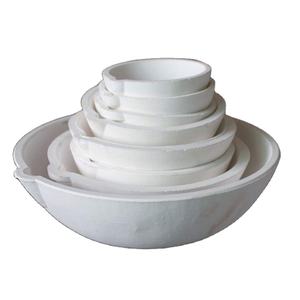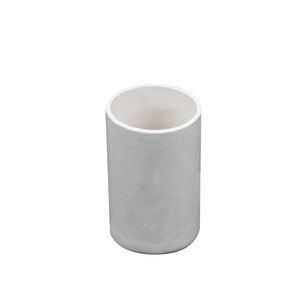Discover Premium Ceramic Products | Durability & Elegance United | Advanced Ceramics
PRODUCT PARAMETERS
Description
Introduction to Alumina Ceramics
Alumina ceramics are known for their high hardness, wear resistance, corrosion resistance, good electrical insulation and high temperature stability. According to the different alumina content, it can be divided into different grades, such as 95 porcelain, 99 porcelain, etc., among which 99 porcelain refers to ceramic materials with an alumina content of 99%. As the alumina content increases, its mechanical strength and electrical insulation properties will also increase accordingly.
Characteristics of Alumina Ceramics
High Hardness: Alumina ceramics have extremely high hardness, which makes it very wear-resistant and suitable for manufacturing abrasive tools and parts that require wear resistance.
Wear resistance: Due to its high hardness, alumina ceramics show excellent wear resistance and are suitable for manufacturing parts for long-term use.
Corrosion resistance: Alumina ceramics have good resistance to most acids and alkalis, making them widely used in the chemical industry.
Good electrical insulation: As an excellent electrical insulating material, alumina ceramics are widely used in electronic and electrical products.
High temperature stability: Ability to withstand extremely high temperatures without significant physical or chemical changes, which makes it an ideal choice for applications in high temperature environments.
Biocompatibility: In the medical field, certain grades of alumina ceramics are used to make medical devices such as artificial joints due to their good biocompatibility.
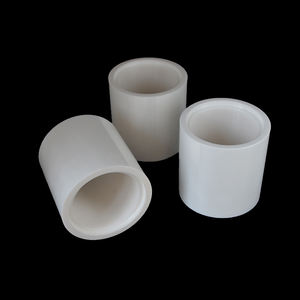
(Refractory Industrial Electrical Insulation 95% Al2O3 Alumina Ceramic Tubes Aluminum Oxide Insulator)
Specifications of Refractory Industrial Electrical Insulation 95% Al2O3 Alumina Ceramic Tubes Aluminum Oxide Insulator
Refractory industrial electrical insulation alumina ceramic tubes made from 95% Al2O3 offer dependable efficiency in high-temperature and electrically requiring settings. These tubes are crafted from high-purity light weight aluminum oxide, making certain outstanding thermal stability and electrical insulation. The material make-up decreases energy loss and avoids current leakage, making them excellent for commercial applications.
The ceramic tubes hold up against temperature levels as much as 1700 ° C, maintaining structural stability under severe heat. Their reduced thermal development coefficient minimizes fracturing or contortion throughout fast temperature changes. This resilience ensures long-lasting use in furnaces, kilns, and high-voltage systems.
Mechanical stamina is an essential feature. The alumina ceramic tubes provide high hardness and put on resistance, suitable for abrasive or high-stress conditions. They resist chemical deterioration from acids, antacid, and molten steels, ensuring dependability in harsh commercial settings.
These tubes are typically utilized in burner, thermocouple defense, and electrical insulator elements. Their electrical insulation residential or commercial properties protect against brief circuits in high-voltage equipment. The smooth surface coating lowers contamination risks, important for semiconductor manufacturing and accuracy instrumentation.
Requirement dimensions include outer sizes from 2mm to 150mm, sizes as much as 1000mm, and customizable wall thicknesses. Customized sizes and shapes are offered to satisfy particular job requirements. The material’s density ranges in between 3.6 and 3.9 g/cm FOUR, contributing to its robust efficiency.
Installment is straightforward as a result of televisions’ precision machining and consistent structure. They incorporate seamlessly into existing systems without needing specialized tools. Compatibility with steels, alloys, and various other porcelains simplifies their usage in composite settings up.
Technical specs highlight a dielectric toughness surpassing 15 kV/mm and quantity resistivity of 10 ^ 14 Ω · centimeters at space temperature. These worths make certain very little electrical conductivity also under high voltages. Thermal conductivity continues to be steady at 20-30 W/m · K, sustaining efficient warm monitoring.
The alumina ceramic tubes are readily available in standard white or ivory coatings, with optional surface area therapies for improved performance. Each system goes through rigorous high quality screening to satisfy sector requirements for dimensional precision and product purity.
Personalization choices consist of threaded ends, flanges, or tapered designs for specialized applications. Mass orders are supported, with preparations adapted to predict scale. Product packaging makes sure secure delivery, with protective products stopping damages during transit.
Ecological resistance encompasses oxidation and UV direct exposure, making the tubes appropriate for interior and outside use. Their non-porous framework stops wetness absorption, keeping insulation residential or commercial properties in humid conditions. Compatibility with vacuum cleaner atmospheres better widens their application array.
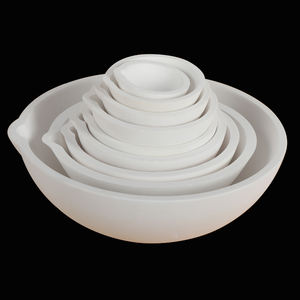
(Refractory Industrial Electrical Insulation 95% Al2O3 Alumina Ceramic Tubes Aluminum Oxide Insulator)
Applications of Refractory Industrial Electrical Insulation 95% Al2O3 Alumina Ceramic Tubes Aluminum Oxide Insulator
95% Al2O3 alumina ceramic tubes are commonly utilized in markets calling for strong electrical insulation and high-temperature resistance. These tubes are made from light weight aluminum oxide, a product known for its hardness and durability. Their high alumina web content guarantees outstanding efficiency in extreme settings.
These ceramic tubes function well in electric systems. They prevent existing leakages in high-voltage equipment. Power plants utilize them to insulate conductors and safeguard elements from electric damage. Their low thermal development keeps them stable under fast temperature changes. This minimizes cracking risks in heat-intensive procedures.
Industrial heating systems count on alumina ceramic tubes for lining and architectural support. They take care of extreme heat without weakening. Metallurgy applications consist of molten steel handling. The tubes withstand rust from hostile chemicals. This makes them ideal for chemical processing devices.
In electronic devices, alumina ceramic tubes protect delicate parts from warm and electrical power. Semiconductor making utilizes them as substrates or safety housings. Their smooth surface area reduces contamination risks. This is vital for precision components.
Power markets like solar and nuclear power make use of these tubes for insulation in reactors and sensing units. They maintain stability under radiation and thermal stress. Aerospace applications consist of engine components and heat shields. The product’s light-weight nature helps reduce total system weight.
Alumina ceramic tubes are also made use of in lab devices. They provide insulation for high-temperature experiments. Their non-reactive nature guarantees compatibility with various chemicals. Clinical tools use them for electric insulation in diagnostic devices.
The 95% Al2O3 make-up offers remarkable mechanical strength. This permits televisions to endure physical stress in hefty equipment. Their resistance to use prolongs life span in unpleasant settings.
These tubes are affordable gradually. They call for very little upkeep and substitutes. Industries choose them for integrity in essential operations. Adjustable shapes and sizes fit particular tools needs.
Alumina ceramic tubes support sustainable practices. Their long life expectancy reduces product waste. They operate effectively in energy-intensive systems. This decreases total power intake.
Makers prioritize quality assurance. Each tube goes through extensive testing for electrical and thermal performance. This makes sure compliance with sector criteria. They are vital in modern manufacturing where trustworthy insulation is required under hard problems.
Company Introduction
Advanced Ceramics founded on October 17, 2014, is a high-tech enterprise committed to the research and development, production, processing, sales and technical services of ceramic relative materials and products.. Since its establishment in 2014, the company has been committed to providing customers with the best products and services, and has become a leader in the industry through continuous technological innovation and strict quality management.
Our products includes but not limited to Silicon carbide ceramic products, Boron Carbide Ceramic Products, Boron Nitride Ceramic Products, Silicon Carbide Ceramic Products, Silicon Nitride Ceramic Products, Zirconium Dioxide Ceramic Products, Quartz Products, etc. Please feel free to contact us.(nanotrun@yahoo.com)

Payment Methods
T/T, Western Union, Paypal, Credit Card etc.
Shipment Methods
By air, by sea, by express, as customers request.

5 FAQs of Refractory Industrial Electrical Insulation 95% Al2O3 Alumina Ceramic Tubes Aluminum Oxide Insulator
1. What is the main material in these ceramic tubes
The tubes use 95% aluminum oxide (Al2O3). This material ensures high purity. It provides strong electrical insulation. Alumina resists heat better than many ceramics. The remaining 5% includes trace elements for stability.
2. How much heat can these tubes handle
They work in temperatures up to 1700°C. This makes them suitable for industrial furnaces. They keep electrical parts safe in extreme conditions. Thermal shock resistance prevents cracks during rapid temperature shifts.
3. Where are these tubes commonly used
They fit high-voltage systems, heating elements, and thermocouples. Industries like steelmaking, glass production, and power plants rely on them. They insulate wires in harsh environments. They also shield sensors in chemical processing.
4. Why pick alumina over other insulators
Alumina beats plastics and lower-grade ceramics in durability. It stays non-conductive even when overheated. It resists acids, alkalis, and oxidation. The material lasts longer under mechanical stress. Maintenance costs drop due to fewer replacements.
5. How to install and care for these tubes
Avoid dropping or hitting them during setup. Check sizes match equipment specs. Clean surfaces with dry cloths to remove dust. Do not expose them to sudden temperature changes beyond rated limits. Test insulation performance yearly for safety.
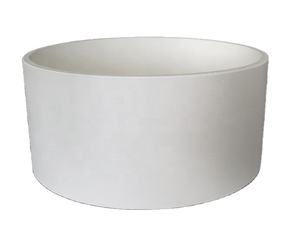
(Refractory Industrial Electrical Insulation 95% Al2O3 Alumina Ceramic Tubes Aluminum Oxide Insulator)
REQUEST A QUOTE
RELATED PRODUCTS
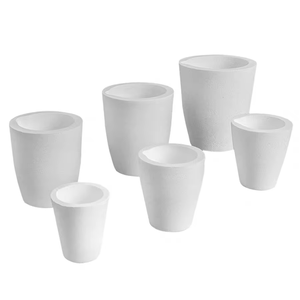
Custom Made High Purity Aluminum Oxide Ceramic Cover
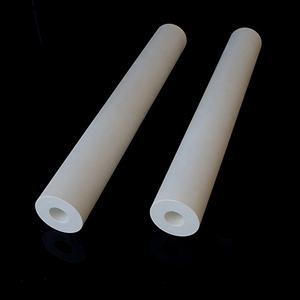
Industrial Electrical Technical Machinery Custom High Heat Resistant Ceramics Alumina Structural Parts
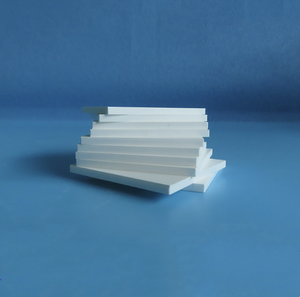
Wear Resistant 95% 99.7% Aluminum Oxide Textile Ceramic Eyelets for Wire Industry
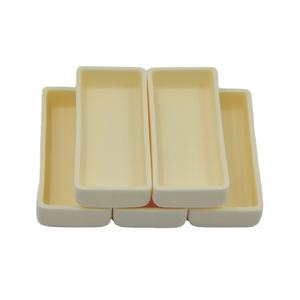
Alumina Ceramic Parts Aluminum Oxide Round Hole Straight Cylinder Ceramic Shaft
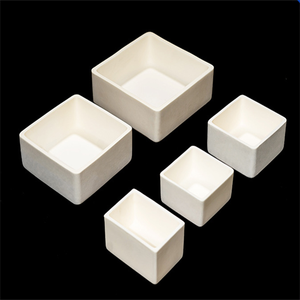
High Quality Whole Cheap Alumina Ceramic Tube Ceramic Sheath Protection Tube Al2o3 Alumina Ceramic Sheath Protection Tube
